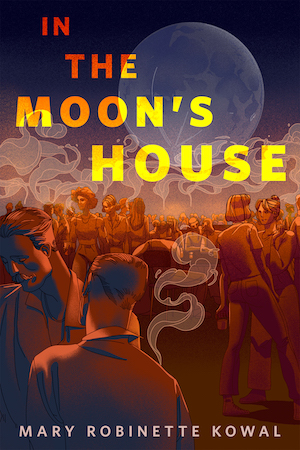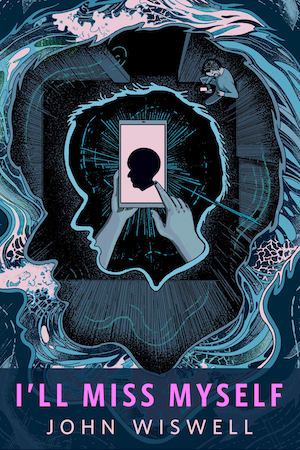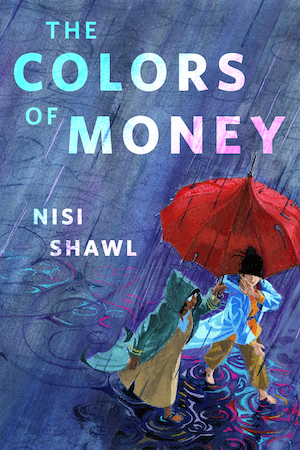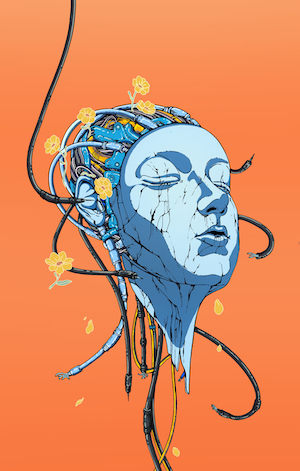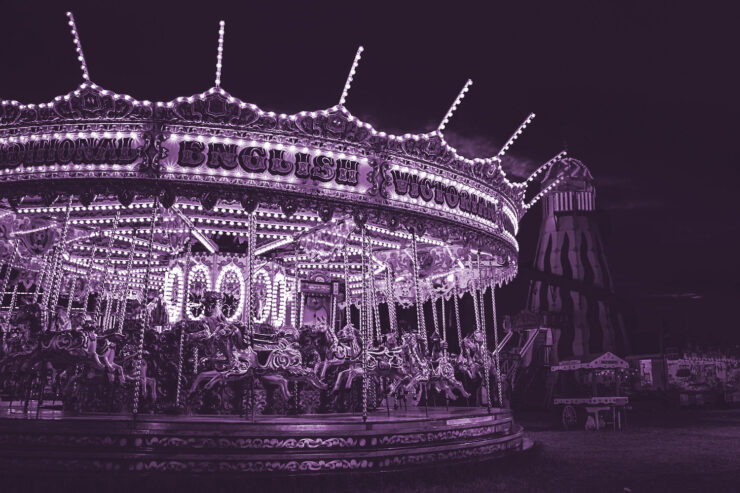Who doesn’t love a good carnival? It’s the perfect place to let go of your real life worries, your daily anxieties and fall into fun and fantasy for a while. The perfect place to witness miracles and magic, people and creatures of wonder, feats and acts of awe. It’s also the perfect place for shadowy secrets and hidden evils, all hiding under the busy festivities.
Any place that pretends to be nothing but loud cheer is sure to have a dark side to it, and these five books explore that, each in their own unique way.
Geek Love by Katherine Dunn
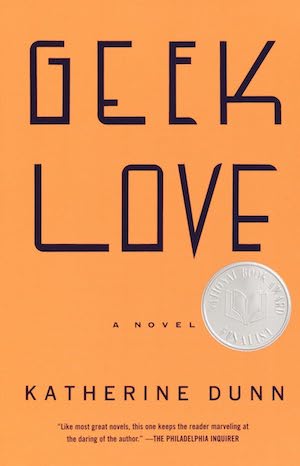
The strangest, greatest, most entertaining and batshit insane carny lit to date is probably Katherine Dunn’s 1989 cult classic Geek Love. The novel (which took Dunn a decade to write) is the story of a ‘freak show’ circus, populated by Al and Lily Binewski’s own children. By consuming all manner of toxins while pregnant—cocaine, amphetamines, and arsenic—Crystal Lil, herself a retired circus geek, gives birth to a series of differently-abled children: conjoined twin girls, a boy with flippers for arms and legs, a hunchback albino dwarf, and a physically average child with telekinesis. There is absolutely no politically correct lens to present this. The whole point of the book is that the ‘geeks’ are a family that are gawked at by everyone else for their (purposely designed) physical strangeness. Dunn’s characters view themselves as superior to those who are… well, average, abled. Al and Lily raise their children to celebrate and find joy in their physical differences, and display these differences with great pride and ownership. They are also of course, just human—living, and loving and just as prone to cruelty as anyone else. Dunn does not give or expect any extra sympathy for them, ever, and makes sure they are each complex characters. Arty, the Aqua boy with flippers for limbs goes on to become a cult leader; he is a scornful, power hungry man who manipulates those around him relentlessly, abusing the average person’s need to feel special, all for his own capitalist gains. The Binewski siblings are a spectacle indeed—but they hold all the power. Geek Love is a glorious, grotesque and brutal look at what monstrous is, and what that even means.
Nightmare Alley by William Lindsay Gresham
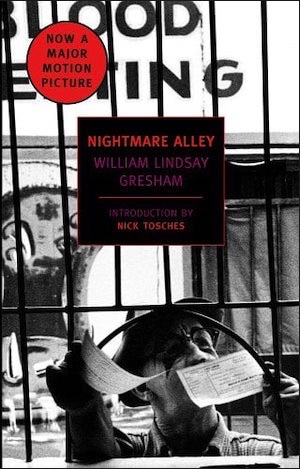
And speaking of geeks, William Lindsay Gresham’s Nightmare Alley (recently made into a film by Guillermo del Toro) follows Stan, a young carny who is ambitious, manipulative, and will do anything to make the big time—but would never, ever fall to the level of the circus geek, a man so pathetically addicted to alcohol and drugs that he’d bite the head off live chickens just to get his next fix. But Stan finds out that manipulating everyone around him isn’t that easy in a world full of cons and carnies… With fantastic lean, 1940s hardboiled prose, Gresham gives us a story that is equally captivating and sad, a protagonist who is unlikeable yet pathetic, and a carnival that abuses and exploits the sad, the lonely, the abject.
The Night Circus by Erin Morgenstern
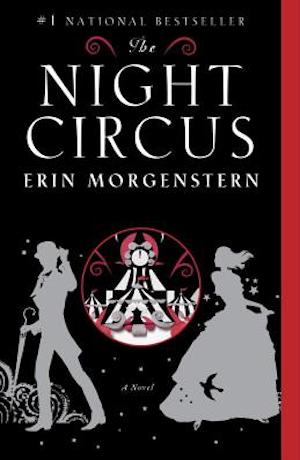
This 2011 NYT bestseller is a lush, gothic fantasy about a circus that appears mysteriously at night, a circus of great beauty and incredible feats, a circus that exists only as a sort of stadium for two young people to outplay each other’s magical abilities in a battle of wills and power that has been carrying on for centuries. Celia and Marco do not know each other for a long time, they only know that their fathers have trained them to outperform the other, via the Night Circus. And the though the circus itself is a place of great beauty (with Morgenstern giving us elaborate set pieces that show us what grand illusions the circus is able to provide it’s audience), there are dark forces at play, not the least of them being the traumas both magicians endured as children, as they learnt skills for a magical battle that had nothing to do with them but they were bound to, for life. Theirs is a sort of magical slavery: they may be creating beauty, but they have been manipulated their entire lives to do so. Can they change their fates, and that of the circus’ performers? And if they do, will they survive?
Something Wicked This Way Comes by Ray Bradbury
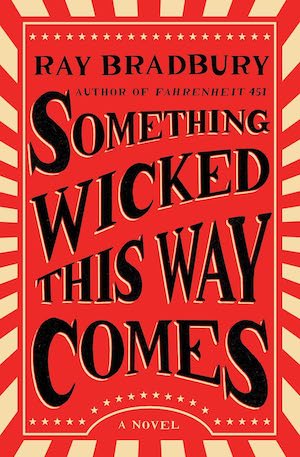
Ray Bradbury’s 1962 novel is a heavily allegorical story about the light and the dark, good and evil, in which a circus pitches up at night at a small American town just before Halloween. Instead of the bright cheery set up you’d expect, Cooger & Dark’s Pandemonium Shadow Show is described as a ‘funeral train’ with a whistle that sounds like a ‘thousand fire sirens weeping’. It is managed by the heavily tattooed Mr Dark, who feeds off people’s pain and dreams, gaining new ink each time he takes someone’s soul in exchange for granting them their deepest, darkest desire. It is also a Bildungsroman of two teen boys who are on the threshold of adulthood, each trying to find out who they really are. Every aspect of Something Wicked is dark, shadowy, frightening—all desires come at a heavy price, one that far too many people think they can pay. Bradbury reminds us how easy it is to be lured into the darkness, how seductive and powerful that attraction can be, and how very dangerous. But he also reminds us of how there is always—always—a way to choose the light, to choose to live our lives with joy and grace and contentment.
Nights at the Circus by Angela Carter
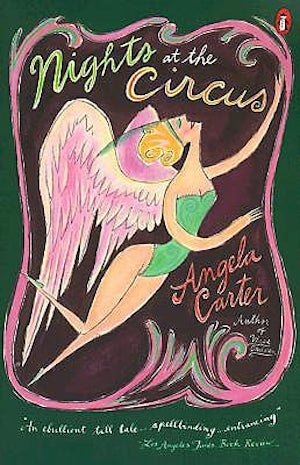
It is impossible to have a list like this without the glorious, over the top prose of Angela Carter and her take on carny lit. 1984’s Nights at the Circus gives us the story of Fevvers, the aerialist with wings, an orphan who may be part swan, but is always all woman. Raised in a brothel and labelled the ‘cockney Venus’, Fevvers’ story is bursting full with classic Carter grotesques, classic Carter maximalism, with an abundance of unexpected metaphors and double entendres. We follow Colonel Kearney’s circus across Europe, all the way to Petersburg and then to Siberia, as we get to know Fevvers and the rest of the crew. The colonel runs his circus on decisions made by his pet pig Sybil’s fortune telling abilities, and there are many strange, violent stories hiding behind the circus’s brightly coloured facade. The clown posse are aggressive, the acrobatic family attempt murder, there is an Abyssinian princess who can sing the tigers into submission, there is abuse and sadness and exploitation, a gang of prisoners and prison guards from a women’s prison who attack the circus train as it crosses the Siberian snows, and a man who believes himself to be a shaman, though everyone else knows he’s not. Fevver’s life with the circus starts out loud, colourful, even playful, but soon Carter shows us the filth that lies underneath those colours; the anger, the force, the madness under the magic, all of which is holding back the women in the story from spreading their (metaphorical or not) wings.


